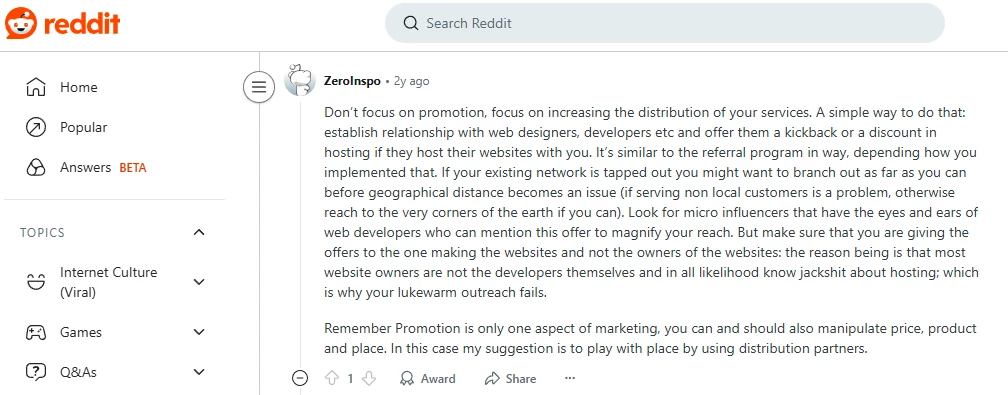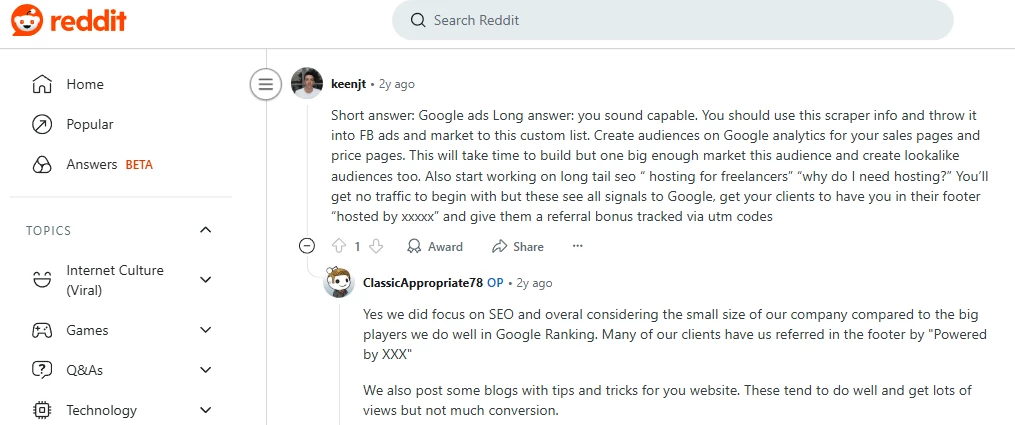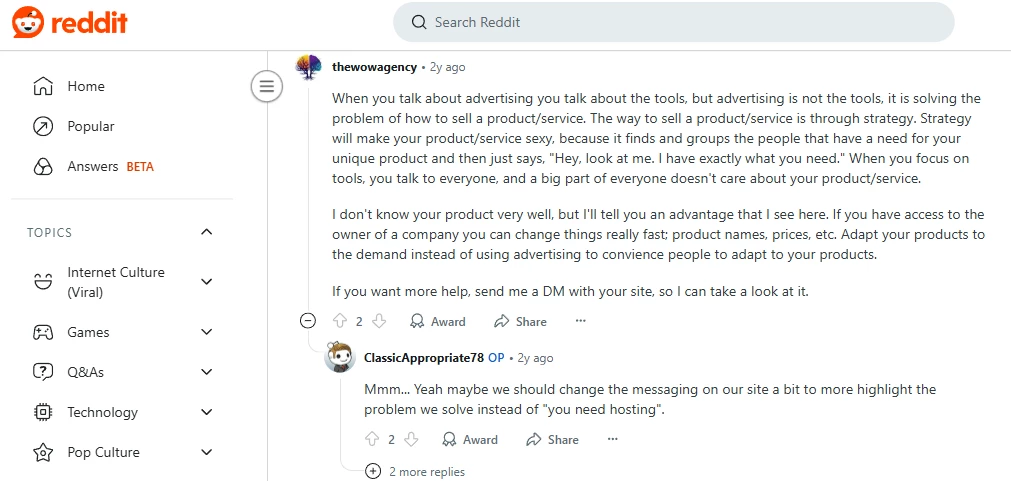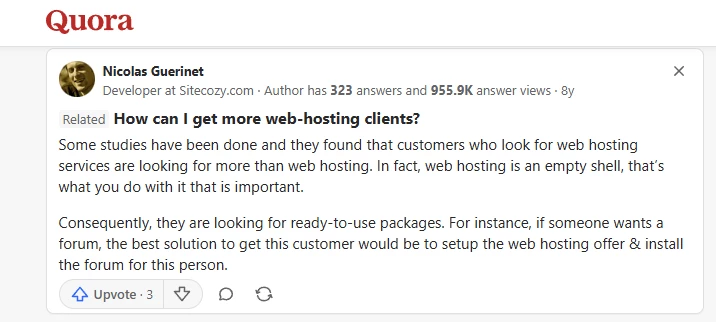This is the next step in our series on how to start a hosting business and keep it going. In the first article, we covered how to set up your servers, choose hosting plans, and get your business off the ground. That’s essential, but doesn’t automatically tell you how to get clients for web hosting.
The web hosting space is crowded. You’re competing with both global giants and hundreds of small providers. To find clients for web hosting, you need a good grasp of the web hosting market and a clear strategy for reaching the people most likely to buy your services. In other words, knowing how to promote a web hosting business and how to find website clients is just as critical as the tech you’ve built. And that’s exactly what we’ll discuss in this guide.
Check the first article about how to start a web hosting business
Web Hosting Explained
We’ve already gone into detail about what web hosting is in the previous article, so just a quick reminder: a web hosting business lets you provide server space, tools, and support so that individuals or businesses can launch and manage websites. You can approach it in different ways:
- reselling hosting plans;
- renting servers;
- or buying and managing your own physical infrastructure.
If your goal is to get clients for a web hosting business, there’s one important insight to keep in mind:
Starting a hosting company often makes the most sense if you’re already active in the web industry.
In other words, if you’re wondering how to get clients for web hosting, the answer often lies in building on what you already do in the digital space. For example, as a web developer, you already have a built-in audience. Your existing clients (people who hire you to build their websites) are exactly the kind of people who need hosting.
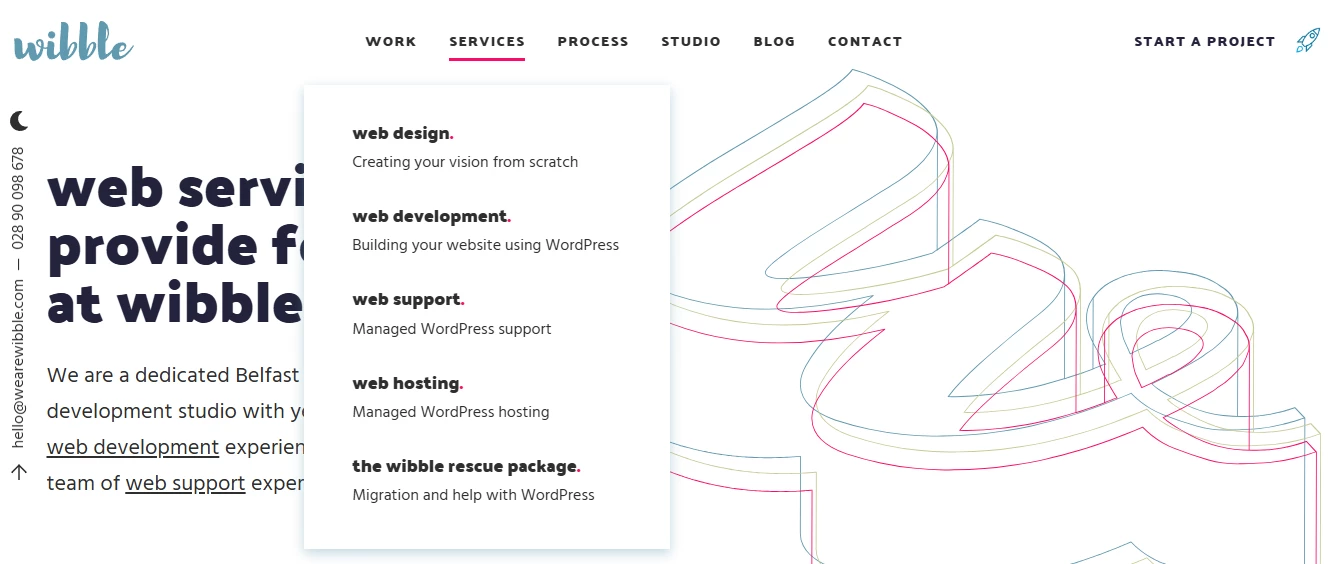
This path is one of the best ways to promote web hosting because it allows you to get web design clients fast by bundling hosting with your development services. Instead of cold outreach, you’re offering something your clients already need. Small business owners, bloggers, or local agencies — any of these clients can turn to you for a single project. And your hosting offer can turn this single project into a long-term relationship.
How to Get Clients for Web Hosting: Marketing Strategy
A common trap novices in web hosting often fall into is that they focus only on marketing activities: ads, blog posts, affiliate links, or even cold outreach. But the catch is that those activities only bring people to your website, but if you want to find web hosting clients, you need to think beyond that.
To build a solid strategy for how to get clients for web hosting, three layers need to align:
- Marketing activities bring potential customers in.
- Your website and offer must be clear and convincing to convert them.
- The product itself — your hosting service — must meet (or better, exceed) expectations so that clients stick around, upgrade, or buy more.
If any one of these is missing, the strategy will underperform. A flashy ad campaign won’t help if your website looks outdated. A polished landing page won’t matter if your hosting is unreliable. And even the best product won’t scale if nobody knows about it.
The good news is that the actual components of a marketing strategy are quite similar to other industries: a strong USP, a clear sense of your target audience, solid competitor research, and so on. Let’s break down each of these now.
USP
If you’re trying to figure out how to get clients for a web hosting business, the first question you need to answer is: Why should they choose you over anyone else? That’s the essence of web hosting marketing: making your offer stand out clearly against dozens of similar ones.
A Unique Selling Proposition (USP) isn’t about vague claims like “fast and reliable.” Every provider says that. A strong USP, instead, ties your offer to something your target audience cares about.
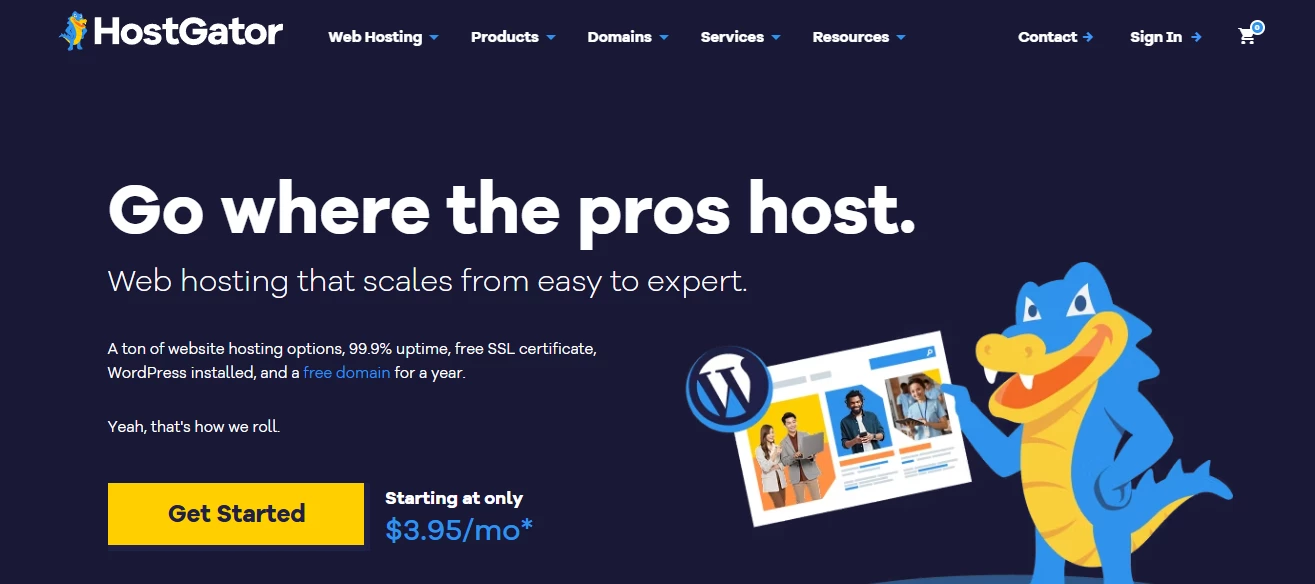
In the above example, HostGator’s USP strives for 100% clarity, which is the best way to promote web hosting services to very different types of customers. Here are a few more examples of how to get clients for web hosting with an effective USP:
- Targeting small businesses → “Get your website live in one day. We’ll set up hosting, install WordPress, and secure it — all included.”
- Targeting developers → “SSD-powered VPS with root access and Docker pre-installed. Ready in 60 seconds.”
- Targeting agencies → “White-label hosting that looks like your brand, not ours. Scale from 10 to 1,000 clients without touching the backend.”
Notice how each of these examples solves a specific pain point: small businesses hate delays, developers want flexibility, and agencies want branding. Everyone views the proposition as more valuable when it feels custom.
It’s hard (perhaps, impossible) to come up with a USP that’ll reinvent hosting. But that’s not what you are after, anyway. It’s enough to highlight what you do best for a specific audience and say it more clearly than your competitors.
Target audience
Of course, it’s tempting to say, “Our hosting is for everyone, everyone’s welcome.” In reality, that means no one will think this offer is for them. If you want to get web hosting clients, you need to speak their language. And for that, you need to know exactly who you’re talking to. That’s how you market a web hosting business effectively.
So, when wondering how to get clients for web hosting, ask yourself, who will be buying your hosting services?
- Freelance web developers
These already work with people who need hosting. They care about speed, uptime, and technical control. If you offer managed hosting bundled with their projects, you help them get web design clients fast, keep them, and even find website clients who are looking for ongoing support.
- Small business owners
These typically want a website that “just works.” They don’t want to learn about servers. Your offer should therefore stress simplicity, customer service, and maybe a starter website package. Strong web hosting customer service, in particular, can make your offer stand out from cheaper alternatives.
- Agencies
These need scalability and white-label solutions. They’ll look at your pricing tiers, reseller tools, and customer support quality.
- Niche communities (gamers, bloggers, local organizations)

Niche communities are smaller in number but often loyal. A gaming clan might need a reliable VPS. A blogger group might need affordable shared hosting. A local volunteer organization … well, you got it.
When you define your target audience, you also define your tone of voice, your marketing channels, and even the way your website looks. It'll be much clearer for you how to get clients for web hosting with that knowledge at hand.
Competitor research
Once you know who you’re targeting, the next step is to understand who else is already serving them and how. The goal is to see what works in your market and how you can position yourself differently.
First, check their websites. Look at the first impression. Are they selling on price (“$1.99 hosting”) or on service (“24/7 expert support”)? What’s their USP?
First, check their websites. Look at the first impression. Are they selling on price (“$1.99 hosting”) or on service (“24/7 expert support”)? What’s their USP?
Next, use research tools (if you are serious about how to get clients for web hosting, incorporating at least one of such tools is smart):
- Ubersuggest / Semrush / Ahrefs (here's an exhaustive comparison of Ubersuggest vs Semrush) → See which keywords drive traffic to competitors (e.g., “best VPS hosting for developers,” “cheap reseller hosting”).
- SimilarWeb → Estimate their traffic sources. Are they strong in SEO, ads, or affiliate marketing?
- BuiltWith → Check what stack their clients’ sites run on. This can reveal niches (e.g., a competitor has many WordPress clients, but not many for Joomla or Laravel).
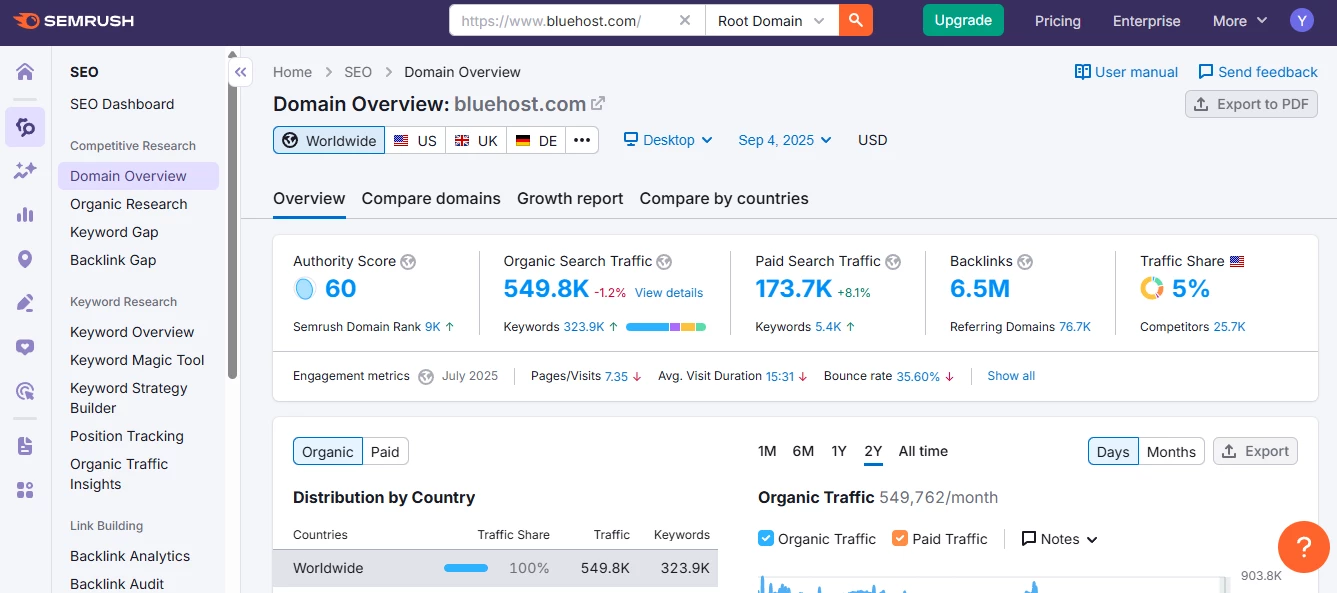
Suppose you discover that all local hosting providers in your region or niche emphasize cheap pricing, but none highlight customer service. That gap becomes your opportunity. For example, you can brand yourself as the host who answers support tickets in under 15 minutes.
Besides, it is always useful to test your competitors’ onboarding. To do this, sign up for a basic plan with two or three competitors and see how easy (or painful) the process is.
And, of course, there are reviews. Platforms like Trustpilot, G2, and Reddit often reveal what real customers love and hate. These web hosting company reviews are a powerful tool for spotting gaps in the market. Thus, for instance, if multiple reviews complain about hidden fees, you can make transparent pricing part of your USP.
Goals & KPIs
Besides the knowledge of how to get clients for web hosting, you also need goals that’ll show where you are heading and KPIs that’ll show if you’re there or not.
You are the boss to set any goals you wish. To survive in the web hosting market, though, it’s helpful to keep them specific and realistic, such as:
- Acquire 40 new shared hosting clients in the first 6 months;
- Keep customer churn under 10%;
- Generate 10% of new sales through affiliates within 12 months, and so on.
KPIs, in turn, will tie to each goal: signups per month, churn rate, customer lifetime value (CLV).
For example, if your blog brings 2,000 visits a month but only 3 signups, the KPI tells you something is off. Maybe the traffic isn’t targeted, or the landing page doesn’t convert. You’ll be aware of the problem thanks to the KPIs.
Conversion Path & Website
We’ve already said this, but it’s worth repeating: Marketing activities send people to your website. But if the site doesn’t convert, you’re “pouring” this traffic into a back hole. That is, when wondering how to get clients for web hosting, it's also smart to brainstorm what will happen when you finally get someone interested in your offer.
A strong conversion path for a hosting business normally includes:
- Clear landing pages: not generic homepages, but tailored offers (“WordPress Hosting for Small Businesses”);
- Transparent pricing: no hidden fees and easy plan comparison.
- Smooth signup flow: too many steps, confusing domain/plan combos, or mandatory upsells drive people away;
- Trust signals: reviews, uptime guarantees, case studies. Organic web hosting company reviews often carry more weight than your own claims.
Retention & Upselling
And finally, it’s smart to have a plan for how you’ll keep your clients once you’ve acquired them. In web hosting, the lifetime value of a client often dwarfs the initial signup fee.
There are tons of strategies for customer retention, and we’ll just review a few examples:
- Strong customer service: tickets answered in under an hour, a knowledge base that actually helps, and everything you’d expect from a good web hosting customer service.
- Regular communication: monthly newsletters, product updates, social media events (just remember that regular doesn’t mean noisy).
- Upsells that add value: SSL certificates, LSWS, automated backups, VPS upgrades. These solve real problems for clients and increase your revenue.
Overall, retention and upselling are where much of your web hosting profit comes from, since keeping clients is cheaper than finding new ones. So consider breaking down the question of how to find clients for web hosting into: how to convert interested audience into your clients + how to retain those clients.
How to Get Clients for Web Hosting: Marketing Tactics
When people ask how to market a web hosting business, they usually picture ads or SEO campaigns aimed at winning new customers. But in web hosting (just as in most industries, in fact), marketing is just as important for your existing clients.
Let’s put it this way: a single new signup might bring you $5–$10 this month. But 80 loyal clients on recurring plans can easily bring in a few thousand dollars. So those customers are worth fighting for, aren’t they? This is why the most profitable web hosting business models focus not only on new signups, but also on retention and upselling.
At a minimum, your marketing should cover three jobs:
- Encourage new clients to buy your hosting plans (or at least test them with a free trial).
- Encourage existing clients to keep buying, upgrade to higher tiers, commit to longer-term plans, or recommend you to others.
- Educate customers so they get the most out of your service. A how-to guide on “setting up a WordPress site” is, in fact, a retention tool. When clients succeed with your hosting, they see you as a partner in their growth. In a way, educational content also serves as web hosting content marketing.
That’s why, when you plan your tactics, don’t just think in terms of “go and buy it.” The equally powerful messages are “keep buying it” and “see how you can succeed with it.”
And, of course, no single tactic works in isolation. SEO won’t drive conversions if your social media presence is silent. Discounts won’t work without email follow-ups. The best way to promote a web hosting business is to combine channels and tactics, from SEO for web hosting companies to social media, so they reinforce each other.
Web scraping
It may sound unusual to list this first as the tactics for how to get clients for web hosting, but it does let you achieve the goal. If you scan thousands of websites daily, you can spot issues like slow loading times, broken layouts, or hosting with low-budget providers. Then you scrape contact details and reach out with your offer.
⚠️ Out of 10,000 emails, you might only get 100–150 replies, and yes, it can feel like spam. Besides, scraping personal data like emails can violate international privacy laws (e.g., GDPR, CASL) and the website's Terms of Service. Furthermore, using bulk cold emails from scraped lists will quickly damage your email sending reputation, resulting in your domain being blacklisted by Google and other providers.
✅ Personalize your outreach: “I noticed your site loads in 5.6s — here’s how we can cut it to under 2s.” That’ll make you look helpful, not pushy. Only proceed with a double-opt-in or a clear legal check of your target's region.
Partner marketing
Partnerships can expand your reach without extra spend… if your partners are active. For instance, many hosting providers bundle their VPS/VDS plans with control panels (cPanel, Plesk, ispmanager) to attract web hosting clients with a ready-made offer. Some of these vendors provide ready-made marketing materials you can use for free.
We’ve put cPanel and Plesk head-to-head — see the results here!
ispmanager, for instance, has lots of freebies for its partners, from a ready-made landing page for the VPS+ispmanager offer to blog posts, promos, and social media content. Resources like these are worth integrating into your marketing strategy.
⚠️ Of course, this only works if both sides commit.
✅ Actively ask partners what resources they can share, and use their resources as a way to promote web hosting. Some companies have special partner material pages, such as ispmanager’s page, where all materials are available for download.
Ads
Yes, in 2026, paid ads (Google, Facebook, LinkedIn) remain one of the best ways to promote a website and convert visitors into web hosting clients.
⚠️ Hosting is a competitive keyword niche, so costs per click can be high. If your website isn’t optimized, you risk burning cash.
✅ Run targeted ads (“WordPress hosting for photographers”) instead of broad ones (“cheap hosting”).
Influencer marketing
Find creators popular in design, dev, or business niches. Their audience often overlaps with people who need hosting, so influencer campaigns may be an effective tactic for promoting a web hosting business.
⚠️ Influencers with massive audiences are expensive so they may not be the best choice for how to get clients for web hosting, at least, not for a startup.
✅ It may be safer to test the strategy with micro-influencers (e.g., a YouTuber teaching web design tutorials).
Email marketing
Still one of the most effective tools. Send onboarding emails, renewal reminders, product updates, and educational tips. But there are nuances, too.
⚠️ Email marketing is easy to overdo. Too many emails/irrelevant content = unsubscribes.
✅ As always, it makes sense to segment your audience. New leads get tutorials (“How to set up your first site”), while long-term customers get upsells (“Upgrade to VPS for faster performance”). This way, you can nurture leads into web hosting clients and retain existing web hosting customers.
SEO & blogging
Articles, guides, and tutorials bring organic traffic over time. For hosting, content like “best way to promote a website” or “how to start an e-commerce business” can help you promote the website effectively and drive web hosting clients to your plans.
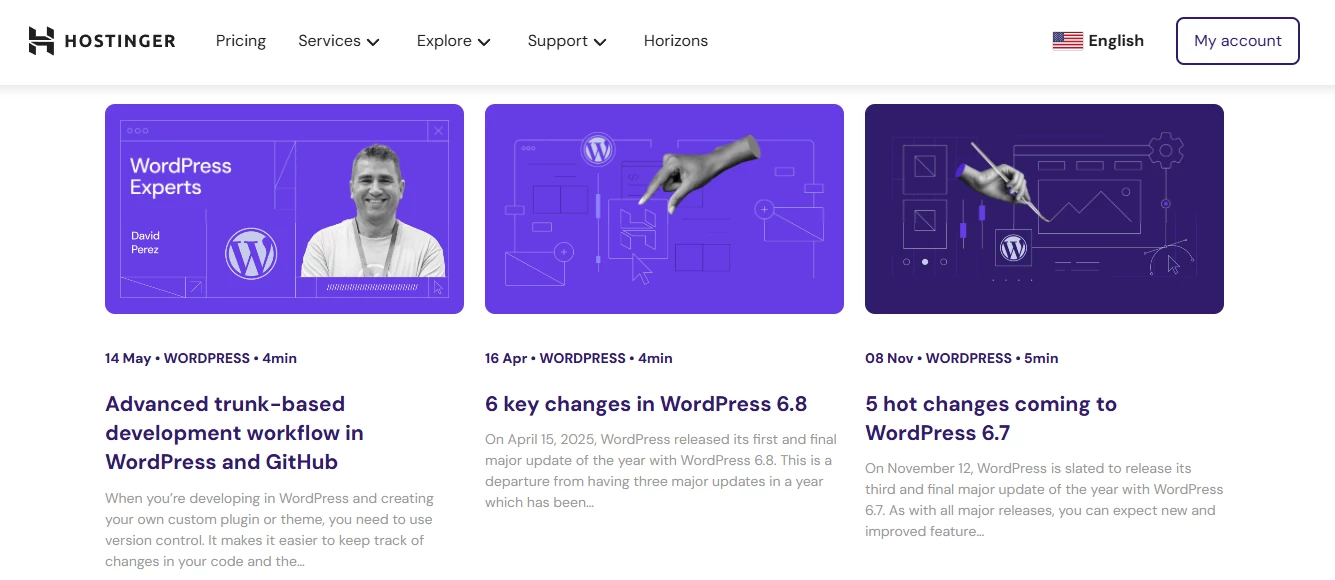
⚠️ SEO takes months to show results, and you may actually get desperate before your articles start ranking high.
✅ Write (get someone to write) practical, specific copies (case studies, how-tos, comparisons). Target long-tail keywords where competition is lower.
Webinars
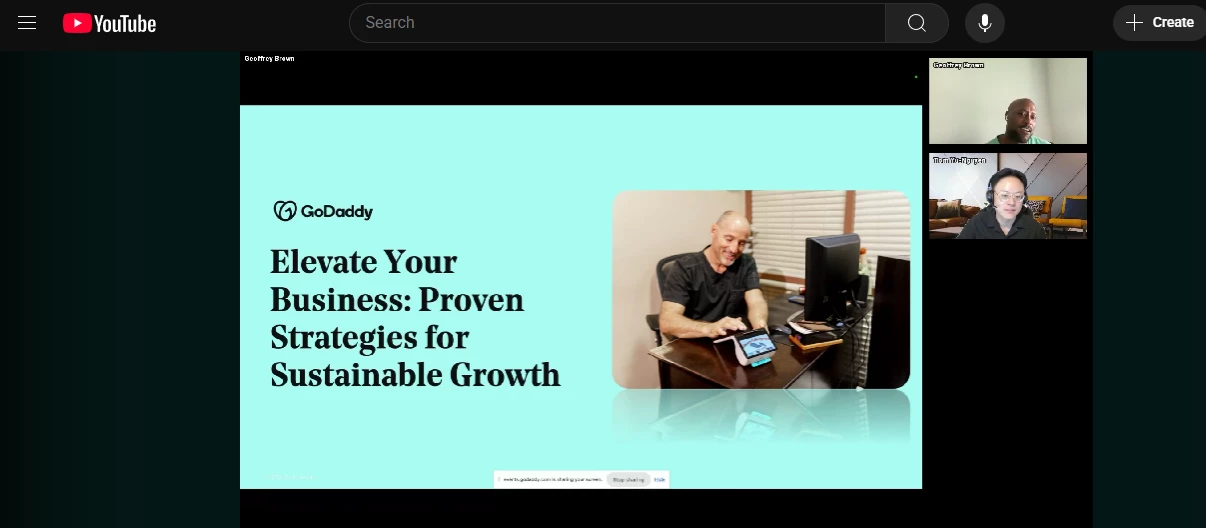
Live or recorded sessions where you explain hosting concepts, migration processes, or security basics work both for new lead generation and customer retention.
⚠️ Content like this requires effort and skills to organize. Plus, attendance can be low.
✅ A way out is to partner with a known tool or local tech community to boost attendance. You’ll record webinars and reuse them as evergreen content.
Promotions
Discounts, trials, and limited-time offers often pay off fast, especially if you lower the entry barrier.
⚠️ Perks attract price-sensitive clients who may leave once the promo ends.
✅ If wondering how to get clients for web hosting who won't leave next month, try to tie promotions to longer-term plans (“2 months free if you pay annually”).
Social media
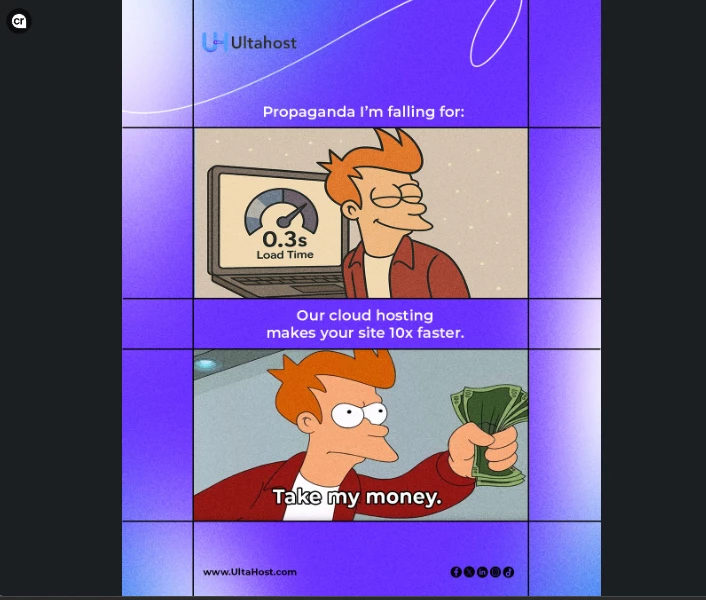
You may be dreaming of going viral. But the task is to, at least, stay visible. Use social media to show behind-the-scenes work and share your latest updates.
⚠️ Likes and followers don’t equal sales. Your posts can easily get lost in noisy feeds, bringing you nothing at all.
✅Try to connect with your customers by speaking their language and showing you share the same values they do (e.g., memes as a format, popular series as a cultural code, etc.).
Case studies
Have a happy client? Show what you did for them. A simple before/after story about improving load speed or solving a problem can turn readers into buyers (especially if they see themselves in that story). This method also appeals to developers looking to get web design clients.
⚠️ You need real clients, real data, and permission to share it. Without clear results, the story feels like an achievement for you and like fluff for your readers.
✅ Show the client’s “before” state (slow site), what you did, and the measurable “after” (the site 3× faster). The key idea is to make your client think, “Wow, I’ve got the same issue and I want it fixed the same way.”
Affiliate marketing
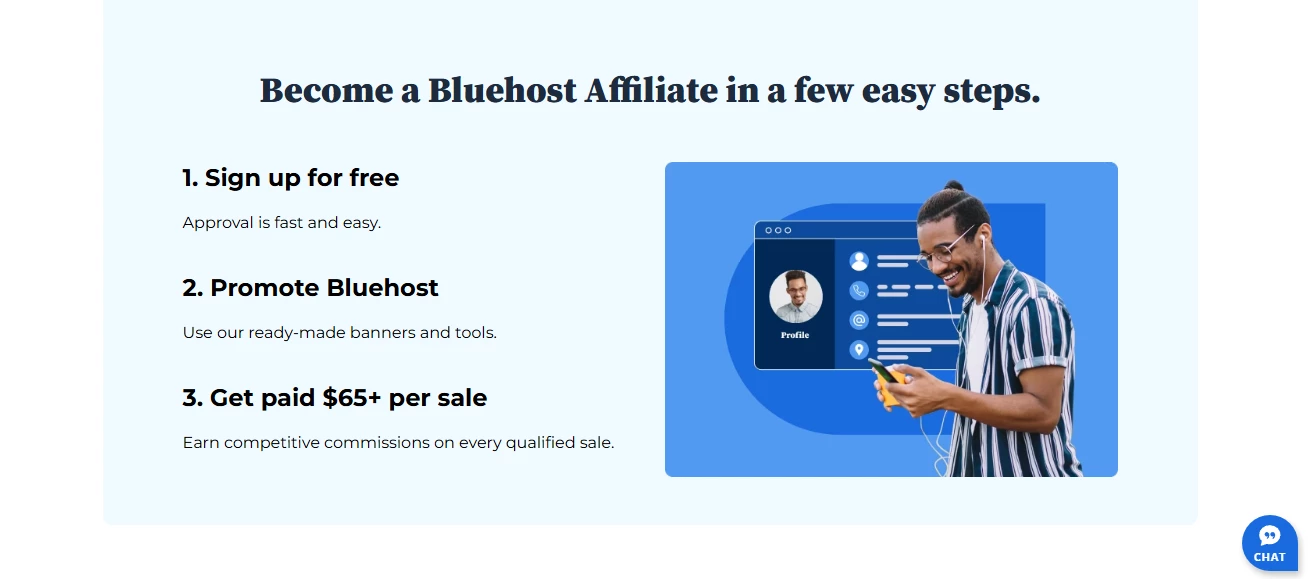
The beauty of the web hosting affiliate marketing strategy is that it lets you pay only for results. Typically, you’d pay your affiliate partners a percentage of the sale or a flat commission. You only pay when someone converts, so it’s not too risky. A strong affiliate marketing web hosting program can boost your client base by 10-15%.
⚠️ Affiliates tend to promote whichever provider pays more, so loyalty is low.
✅ Niche hosting offers (like Laravel-optimized servers) perform better because affiliates know exactly which audience to target.
Getting reviews
This isn’t a traditional tactic for how to get clients for web hosting, but it’s worth including in your broader strategy. Hosting company reviews on platforms like Trustpilot, G2, or Reddit do carry weight.
⚠️ Alas, clients rarely leave reviews unless pushed or unhappy.
✅ Make leaving a review easy and friendly. Acknowledge that it’s you who needs your web hosting company reviews and make the client’s feedback look super important.
Geo-targeted and relationship-based marketing
Now, if your clients are mostly local businesses, you may consider going local with your outreach. People love working with someone who’s not just a URL but someone they can talk to, meet, and trust.
Network locally
Join local networking groups or tech meetups. Attend small business breakfasts, WordCamps, and local developer events. Don’t pitch hard, just be helpful and mention what you do and how you can help web hosting clients in your area.
Offer special terms to local businesses
Small shops, schools, agencies — many of them need hosting, but don’t have time to compare a dozen options. Offer them a simple bundle (e.g., hosting, email, domain, a user-friendly control panel, and support) that makes it easy for local businesses to get web hosting without hassle. We've got details comparison guides on which control panels to bundle with different web hosting plans:
Partner with local web designers
Many web designers just want someone reliable to host their clients’ sites. Offer them a commission or a discount for using your hosting. You manage the tech, and they bring you new web hosting clients. Thanks to your reliable hosting, they also get web design clients fast.
Word of mouth (still king)
If you’ve built websites for clients before, you already have your first audience. Now it’s time to turn them into web hosting clients and maybe even into your ambassadors. Here are a few ideas for how to get clients for web hosting with the help of the word of mouth approach:
- Offer to migrate their site for free;
- Give them a loyalty discount;
- Make the process simple and give them a reason to refer others (e.g., a month of free hosting for every referral).
Clients who trust you for websites are very likely to trust you for hosting. Plus, they often know others who need web hosting services, and so they may help you find website clients more easily.
How to Find Clients for Web Hosting: Reddit Wisdom
We’ve covered a lot already about how to get clients for web hosting and how to promote a web hosting business, but, as always, there’s much more to discover. The best insights often come from people actually doing what you want to do.
If you don’t yet have friends running similar businesses, online forums are a great place to start. Places like Reddit and Quora are full of real-world advice, discussions about web hosting customers, and tips you won’t find in official guides.
The idea is simple: read what others share and learn from it. You’ll get a sense of how hosting providers really handle clients and discover ways to improve your web hosting customer service.
How to Get Clients for Web Hosting: Wrap Up
The list we’ve covered here is so long, it may look scary, indeed. But the truth is that you don’t need every marketing channel. You need the ones that fit your clients and your style. If you’re not a LinkedIn person, skip it. If you’re great at explaining things, start a blog or a YouTube channel. Focus on 2–3 channels that you can realistically maintain and do your best there.
This guide isn’t meant to be followed step by step like a recipe. Once you’re comfortable and confident with a few tactics, you can come back and explore others. Over time, you’ll see what combination of web hosting marketing tricks brings in real web hosting clients.
